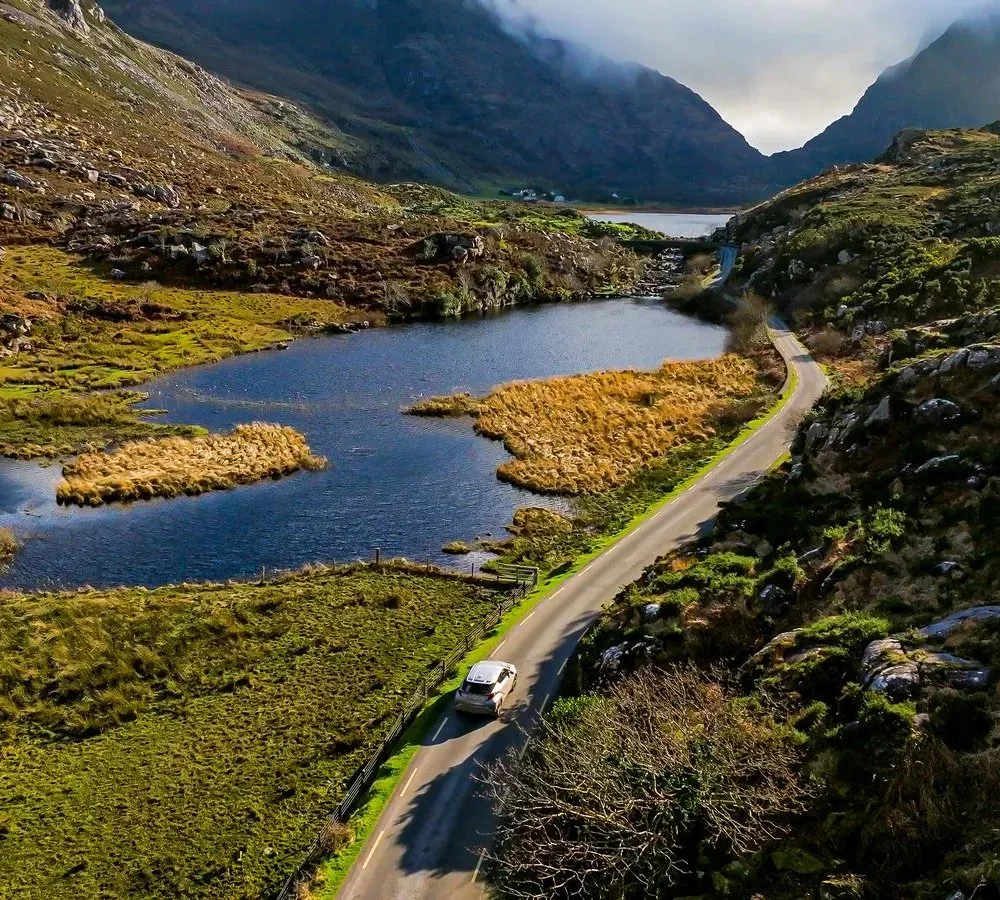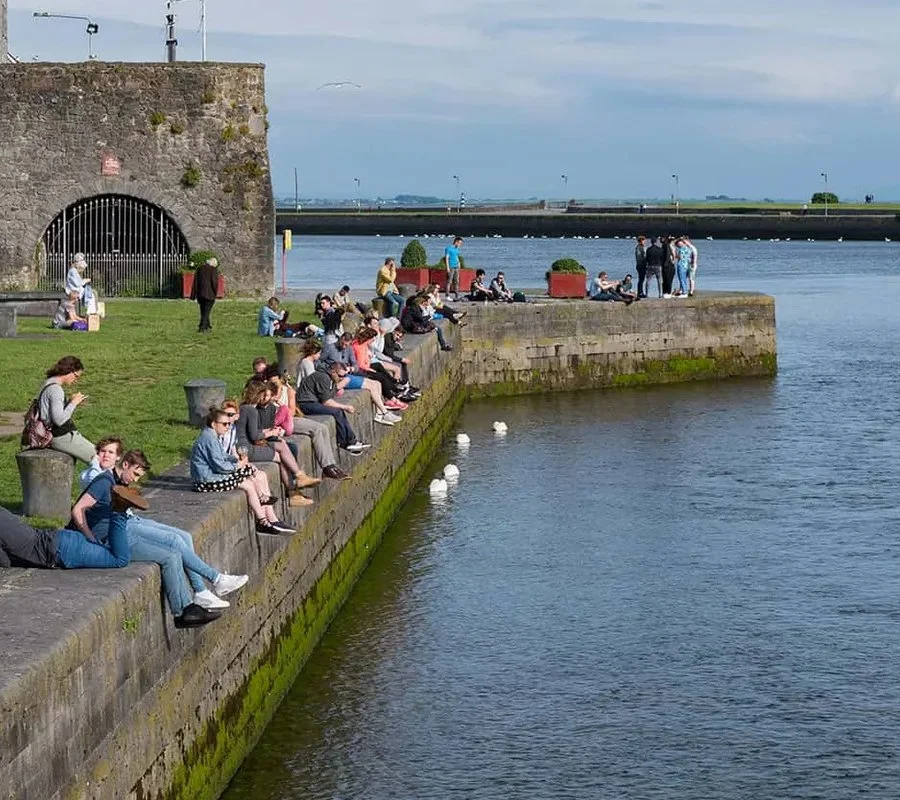Ireland
GMT (UTC+0)
BST during summer (UTC+1)
Daylight saving time is observed
Euro (€)
Used widely across the Eurozone
Modern exchange rates; cards are widely accepted
A rich Celtic and Viking heritage
Centuries of struggle for independence and cultural revival
Iconic landmarks and legendary folklore
Visa-Free Countries
Visa on Arrival Countries
E-Visa Countries
Visa Required Countries
Culture
Ireland is celebrated for its rich cultural tapestry woven from Celtic traditions, folklore, literature, and music. The spirit of the Emerald Isle lives on in its storytelling, dance, and vibrant pub culture.
Key elements of Irish culture include:
- Celtic Heritage: Ancient legends, Gaelic language, and traditional music form the backbone of Ireland’s cultural identity.
- Literature and Arts: Ireland has produced world-renowned writers and poets; its contemporary arts scene thrives in festivals and local galleries.
- Festivals and Traditions: Celebrations such as St. Patrick’s Day, traditional ceilidhs, and local fairs highlight the country’s communal spirit.
- Culinary Delights: From hearty stews and soda bread to fresh seafood and artisanal cheeses, Irish cuisine reflects its natural bounty and traditions.
- Hospitality: Irish warmth and friendliness are legendary, with local pubs and community events providing a genuine taste of the local lifestyle.
Today, Ireland blends its ancient heritage with modern creativity, making it a dynamic destination for cultural enthusiasts and curious travelers alike.
Tourism & Best Sites to Visit
Ireland offers a wealth of attractions—from bustling cities and historic castles to breathtaking natural landscapes. Whether you’re exploring vibrant urban centers or scenic rural areas, there is something for every traveler.
Here are some of Ireland's most remarkable destinations:





Dublin: Explore the historic streets, vibrant cultural scene, and landmarks such as Trinity College and the Guinness Storehouse.
Cliffs of Moher: One of Ireland’s most iconic natural wonders, offering breathtaking views over the Atlantic Ocean.
Ring of Kerry: A scenic drive through lush landscapes, charming villages, and ancient sites in southwestern Ireland.
Galway: Known for its arts, music, and friendly atmosphere, Galway is a cultural gem on the west coast.
Blarney Castle: Visit the legendary castle to kiss the Blarney Stone and immerse yourself in Irish folklore.
Transportation
Ireland offers a variety of transportation options that make exploring both urban and rural areas convenient and enjoyable.
- Air Travel: Dublin Airport is the main international gateway, with additional airports serving regional and domestic routes.
- Public Transit: Extensive bus and rail networks connect major cities and towns, with modern systems in Dublin and other urban centers.
- Car Rentals and Taxis: Renting a car provides flexibility to explore the countryside, while taxis and ride-sharing services are readily available in cities.
- Guided Tours: Numerous guided tours and coach services offer hassle-free exploration of Ireland’s scenic routes and historic sites.
With efficient public transportation and well-maintained roads, getting around Ireland is both comfortable and convenient.
Airports
Ireland’s airports are modern and well-equipped to handle international and domestic travel. They serve as key gateways to Ireland’s rich heritage and scenic beauty.
- Dublin Airport (DUB): The busiest airport in Ireland, offering extensive international connections and modern facilities.
- Shannon Airport (SNN): Located on the west coast, Shannon provides connections to Europe and North America.
- Cork Airport (ORK): Serving the south, Cork Airport offers both domestic and international flights.
- Regional Airports: Smaller airports across Ireland ensure easy access to rural and scenic regions.
Ground transportation options such as taxis, car rentals, and shuttle services are available at all major airports for seamless onward travel.
Visa & Travel Information
Ireland is not part of the Schengen Area and maintains its own visa policy. Many Western travelers can visit visa-free for short stays, while others must apply for an Irish visa.
Visa Options by Nationality
The table below outlines visa requirements for common nationalities:
| Nationality | Visa Requirement | Maximum Stay |
|---|---|---|
| Citizens of EU/EEA countries | Visa-Free | No Limit |
| Citizens of USA, UK, Canada, Australia, and most Western nations | Visa-Free | 90 days |
| Most other nationalities | Visa Required | 90 days |
Visa Application Process: For travelers requiring a visa:
- Submit your visa application at the Irish consulate or embassy in your home country. Required documentation typically includes a valid passport, recent photograph, travel itinerary, and proof of accommodation.
- Verify if any additional documentation or processing fees apply for your nationality.
Entry Requirements: Visitors must have:
- A passport valid for at least three months beyond your planned departure
- A valid visa (if required).
- Proof of sufficient funds and confirmed travel arrangements.
- Travel insurance covering medical expenses and repatriation.
- Return or onward travel tickets.
- Asia
- Singapore
- Japan
- South Korea
- Africa
- Seychelles
- Mauritius
- South Africa
- Contact:
- Address: Eighth Avenue Place, East Tower, 525 8 Avenue SW Suite 3200 Calgary, Alberta T2P 1G.
- Email: Info@theazmip.com
- Number: +12812363495
Travel the World Without the Burden of Visa Applications, as TheAzmip.com Connects You to the Best Visa-Free Destinations.
- North America
- United States
- Canada
- Mexico
- Oceania
- Australia
- New Zealand
- Samoa

